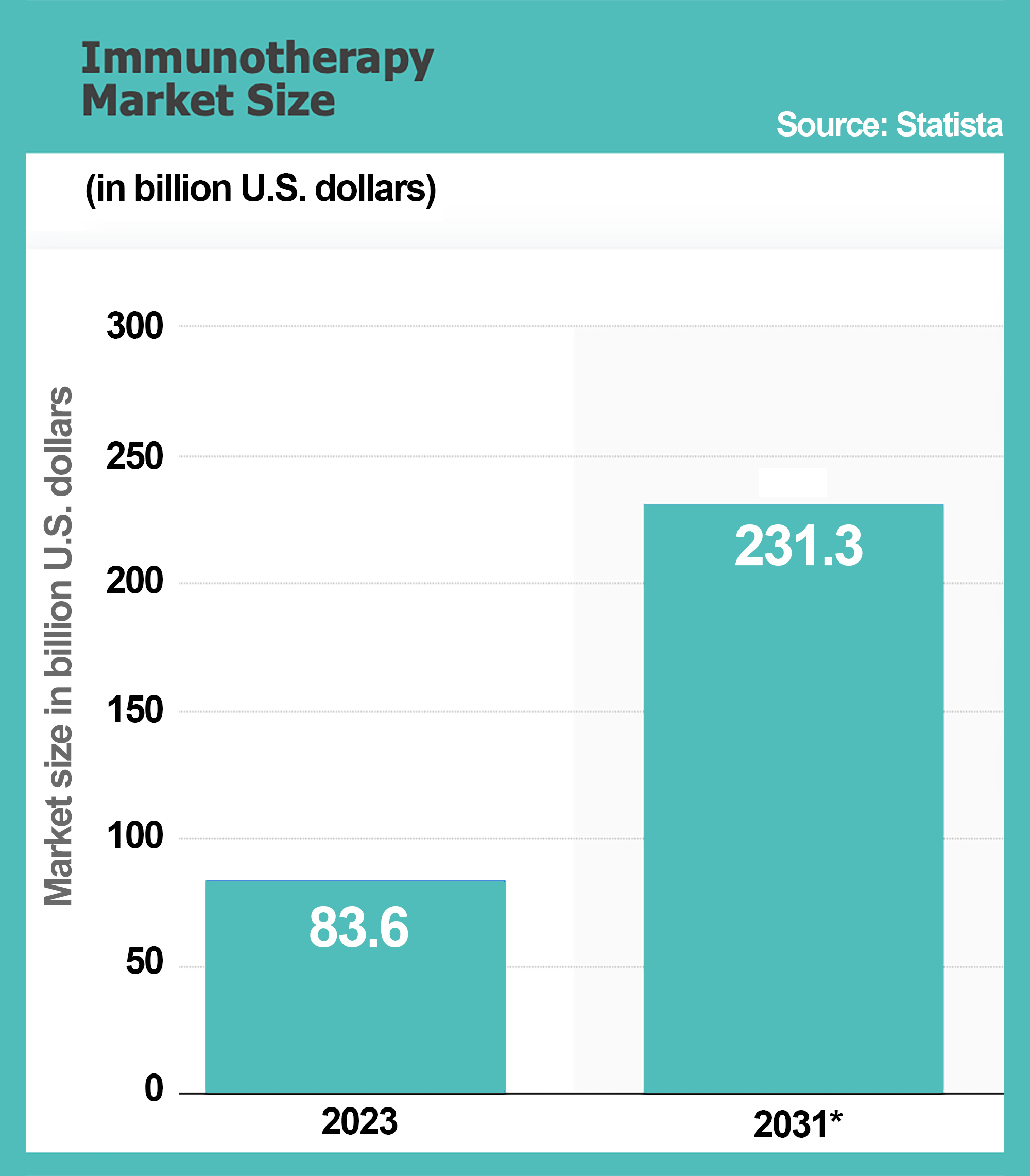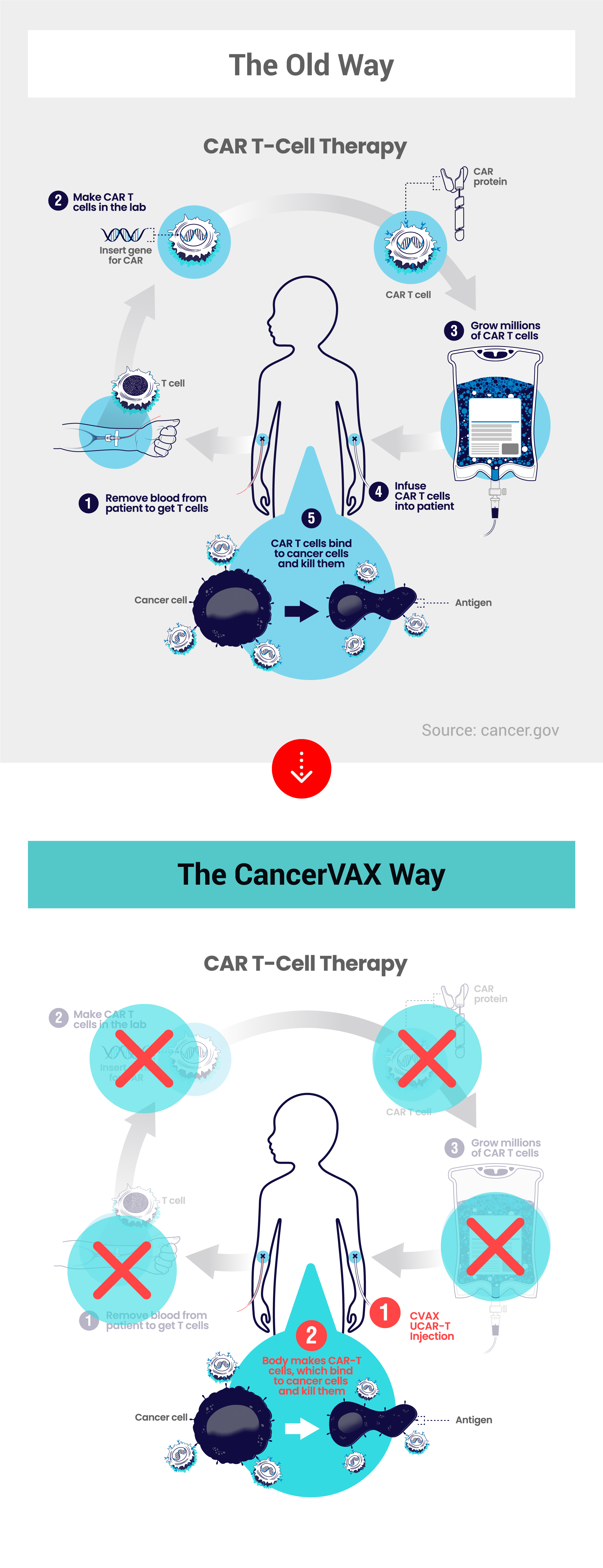According to the World Health Organization, cancer is the second leading cause of death globally and was responsible for an estimated 10 million deaths in 2023.
The American Cancer Society estimates that 1.95 million new cases of cancer were diagnosed and that 609,820 cancer deaths occurred in the United States in 2023.
Conventional cancer treatment methods such as surgery, chemotherapy, and radiation therapy often have limited efficacy and serious side effects. The “war on cancer” continues.
According to a 2024 report from Statista, the global cancer immunotherapy market will grow from $83 billion in 2023 to $231 billion by 2031.

Cancer immunotherapy, also known as cancer treatment vaccine, has emerged as a very promising next-generation treatment. Immunotherapy utilizes the body's own immune system to treat cancer, this usually has milder side effects and is more targeted than chemotherapy.
The rapid growth of the immunotherapy market can be attributed to three primary factors:
- Rising cancer incidence worldwide
- Increased awareness about immunotherapy treatment options beyond traditional chemotherapy, radiation, and surgery
- Increasing patient and physician interest in newly invented advanced treatments
The two biggest immunotherapy drugs – Keytruda from Merck (NYSE: MRK) and Opdivo from Bristol-Myers Squibb (NYSE: BMY) – started out as niche products for incurable lung cancer and gradually expanded into blockbuster drugs with multiple cancer indications. Their robust sales are strong testaments to the science and market potential of immunotherapy – using the body's immune system to treat cancer.
While there is no single magic “cure-all” cancer vaccine, disease-specific immunotherapy has proven to be effective in improving patient quality of life and survival rates. This translates into a large and growing market with many winning opportunities for biotech companies and many drug options for patients.
